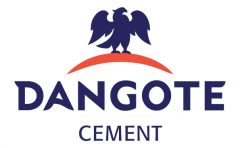
By Victor Ogiemwonyi
In the first two pillars delved into as part of the series: “Government Should Do What The Private Sector Can Not Do,” what Governments must compulsorily do, i looked at healthcare and concluded that Governments must take the lead, and make it both available and affordable.
In the follow-up to the above, I also examined security, as the next most important pillar governments must prioritize and compulsorily focus on, because only a secure environment can offer peace of mind and overall welfare to the citizenry. I advocated that government needs to restructure and decentralize the entire security architecture in Nigeria, while internal security must follow a layered approach.
In Conclusion: Education And Judiciary
Educational and the Judicial systems are the other two pillars that any serious governments must ensure are in place and working optimally.
Although, some may argue truly that education can be provided by the private sector efficiently and effectively, proper government supervision and regulation is still key, just as its commitment and responsibility for educating its people is fundamental and cannot be over-emphasised. This is because education is a public service that impact every other.
Education As Development
Education represents the most important aspect of development with multiplier effects on every area of human development. Government’s focus on education must be holistic and viewed from the broadest perspective as possible. This means people must be educated to think and broaden their minds, so as to help themselves. Education in this regard means every type of education from its basic form, technical/vocational and even tertiary education capable of enhancing skills transfer to the people.
Ensuring access to basic education for all its people should be the minimum standard provided by government by making it the right of every child. It must also be compulsory for all children up to year 12. Every effort must be made to enable those who can further their education to any level they desire, because an educated populace is easy to govern, because education empowers, and is a way out of poverty.
That is why education is the most effective poverty alleviation mechanism, any government can provide its people. Financing education is not as expensive as people think, because illiteracy is far more expensive.
Getting The Right Skill Set
After basic education where people learn to think, the next level is skills development, which is essential for making people productive. An educated mind can quickly absorb skills, skills keep people employed, whether in self employment or working in an establishment.
Today, acquiring skills has become the biggest challenge. We have many educated people who lack even the basic skills because our educational system in recent times has made little room for skills acquisition. This needs to change urgently. But luckily we can do this rapidly because of our huge youth population that is educated enough to quickly acquire skills that can be provided in targeted courses within a short time. With this we can easily put a large number of them through quick skills acquisition programmes, like short training courses of between 18 and 24 months, which is capable of making a huge difference.
Increasing our teacher-student ratio, for instance, will create opportunities for the numerous graduates currently unemployed to register for the National Certificates of Education (NCE) necessary to become trained teachers in our primary, secondary and vocational schools.
Nursing is already one of the quick wins, in this area because of the enormous prospects they have for employment locally and abroad. There are many other viable areas that can be accelerated. We need to make it a national priority to hasten this part of our education, create jobs, and prepare for our coming economic revolution.
My first job as a graduate, was with the industrial Training Fund (ITF) which remains one of the best ideas that is yet to fully realize its potential since it was established in 1973. The scheme was structured to encourage employers to keep training their staff for skills and, thereafter make claims from the funds pooled by all registered companies who were compelled to contribute 1% of their gross payroll to the Fund. Those that engage in training of their staff get refunded when they show evidence of the training in the previous year. This arrangement was a win-win idea for industry and country.
These are the type of programmes that must be initiated and accelerated. Also, technical and vocational eduation should be made free for students, and entrepreneurs that want to establish such institutions and should be encouraged and incentivized with grants against the results of their products.
Financing Education: Benefits Of Student Loan Programme:
The Student Loan Programme recently introduced by the Nigerian government to enable beneficiaries finance their university education, comprising tuition and an allowance for upkeep, is one of the most consequential achievements of the current Administration. Its impact will be massive if implemented wholeheartedly and becomes fully operational. The fund will provide access to higher education to many Nigerians who will ordinary have been denied access.
A retrospective view of the Nigeria of the 60s and 70s, highlights the difference education made in the lives of those who got free education at the Basic and secondary levels, and in some cases, through government loans and scholarships up to university education in those years.
The progress we see today in those areas where education was free, particularly, in the Southwest, clearly shows that the cost of free education, was no cost, at all, when compared to the benefits.
The benefits includes a large army of educated people with employment, many who who are self-employed, and free from the scourge of poverty.
Needed Reforms In Our Education Today:
Education in Nigeria requires reforms in many areas, but unfortunately, only a few can be reviewed here.
Budgets for education need to seriously increase, and must be just as big as healthcare budgets, and must provide access for all children.
It must provide for teachers, at all levels, make the teaching profession attractive again, such that teachers can find satisfaction in what they do. Teachers, are not asking to be paid like Bankers, they teach because most of them love what they do. All they want is a little above average remuneration that give them some measure of comfort and that they are appreciated. It will inspire them to give their best.
As has been done in the past with university teachers, getting accommodation within their universities, access to grants and freedom to research and teach. This can be done differently today, even when providing such accommodation, maybe outdated in the current environment, this can be done by augmenting with a proper yearly grant, of housing allowance that does not form part of their normal remuneration. They can also be given Car loans, that are repayable from their monthly pay.
The inadequacies in basic remuneration for this very important group of people tasked with nurturing of our children, has resulted in having many in our teaching professions who really don’t want to teach, but only using it as a source of income. Such people combine teaching with buying and selling and other non academic endeavours which prevent them from giving their best to our children.
We need only people who want to be teachers. The recent requirement, that anyone who wants to teach in our universities must possess a Ph.D degree and be ready to be published is one of the best things that have driven out casual teachers from our universities.
The prescriptions here for university teachers to provide housing grants and car loans should also be availed to all others in the teaching profession.
Our commitment to education as a nation must be total.
Victor Ogiemwonyi, a retired Investment Banker, writes from Ikoyi, Lagos through Marketconversations.sub-stack. com.
















